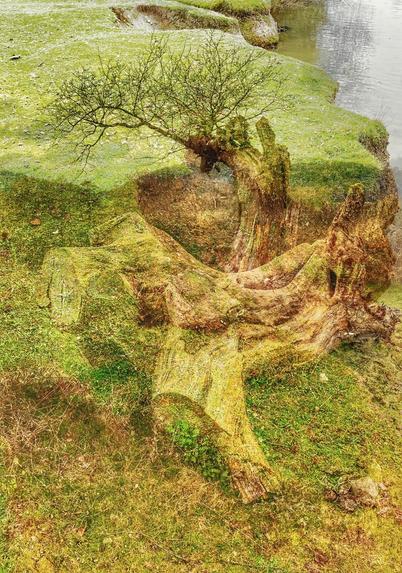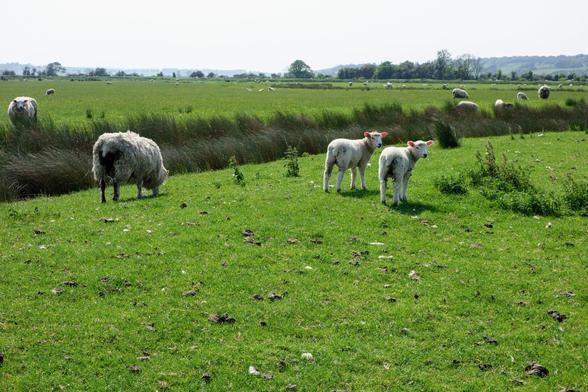We must preserve the common land of #England. Precious, historic spaces for the people. Dead #wood; live wood; unimproved #pasture; #water. Hollybush Common, Golden Valley, #Worcestershire.
Recent searches
Search options
#pasture
#FotoVorschlag 'Grenzbereich'
Am Grenzbereich zwischen Himmel und Erde.
Fotos ohne #alttext werden von mir leider nicht bewertet.
"The American Beef Industry Understood Its Climate Impact Decades Ago"
https://insideclimatenews.org/news/14032025/american-beef-industry-knew-climate-impact-decades-ago/
People need to know about the anti-science and pseudoscience promoted by the meat industry, especially the cow meat industry, to hide the non-slaughter horrors of their bloody industry.
<>
Jacquet, a professor of environmental science and policy at the University of Miami, noted that the 2006 UN report represented an inflection point, not only making the public aware of livestock’s climate impact, but putting the industry on notice that it could potentially be targeted for regulation. The report said that livestock’s climate emissions—which come from converting forests to pasture, growing feed, methane-emitting cow burps and manure storage—were about 18 percent of the global total, more even than the transportation sector.
</>
<>
In 1989—the year after NASA’s James Hansen famously told Congress that climate change posed a global threat—the Environmental Protection Agency held a workshop focusing on methane emissions from livestock and, soon after, published a report, “Reducing Methane Emissions from Livestock.” The report said that livestock were a major source of methane and estimated that a 50 percent decrease in global emissions from livestock would yield huge benefits for stabilizing this especially potent greenhouse gas. Tucked into an appendix was the following suggestion: “Reducing methane emissions from ruminants should be pursued as part of an overall investigation into alternatives for reducing future global warming and its impacts.”
</>
<>
Jacquet and her co-authors note that representatives from the meat and dairy industry attended the 1989 EPA workshop, including a member of the National Cattlemen’s Association. Several months and a handful of planning meetings later, the association, which is the country’s biggest beef lobby and now known as the National Cattlemen’s Beef Association, or NCBA, developed a “Strategic Plan on the Environment” to counter anticipated public relations problems or regulations related to climate change. The plan included suggestions to reach out to “key influencers” with research and positive messaging about the industry’s environmental benefits.
</>
...
<>
In a separate study, published this week, Jacquet and another University of Miami researcher, Loredana Loy, trace the meat industry’s efforts to derail advocacy groups’ attempts to persuade the public to eat less meat as a climate strategy. These attempts include the Beyond Beef campaign and others, including Diet for a New America and Meatless Monday.
</>
<>
The study says the livestock industry took a different approach than the oil and gas industry, which tried to convince the public it was only continuing to develop fossil fuels because consumers called for them. The livestock industry, on the other hand, tried to convince consumers that their dietary choices would make no difference.
</>
Doppelt geMÄHppelt // Same #lamb twice over
#SheepOfMastodon #sheepodon #Schafe #Schaf #Lamm #Lämmer #lambs #sheep #Rye #countryside #hike #hiking #rambling #wandern #England #MähMittwoch #CountryWalks #pasture #pastures #Weide
This bull calf was the 'stupid follower', 'devot calf' with a rickety stature.
But he is warm-hearted and good-natured. A little reserved and mistrustful from the beginning. We always call him "die limousin" but it is actually a bull "der limousin".
The round belly indicates worms in the digestive tract.
Wormwood, chinese rhubarb, bracken fern, burdock, flaxseed, cloves and garlic are natural dewormers.
I used burdock and flaxseed, cloves with some success.
#limousin #cattle #nature #autumn #naturephotography #trees
BIB // SUBLIMINAL EXCESS // PASTURE // ASKO @EMPTY BOTTLE
Empty Bottle, Sunday, February 23 at 08:00 PM CSThttps://chicago.askapunk.net/event/bib-subliminal-excess-pasture-asko-empty-bottle
Did I post this vintage seduction postcard on here when it went up on ErosBlog? No easy way to search my own toots, so who knows? ¯\_(ツ)_/¯
But I do not think I did. This pastoral seduction scene is perhaps from Beiderer/Ostra studios in pre-WWII France.
https://www.erosblog.com/2024/10/21/vintage-french-postcard-seduction/
Passing through the flower field
she let go of all her reserves and
embraced her total freedom
#MastoPrompt
#wormhole
#dailyhaikuprompt
#pasture
#haiku 7/9/7
#senryu
#poetry
#SmallPoems
#writing
#photography
@stevencudahy
@dailyhaikuprompt
Field of Freedom - Aobram
Old and bloated cow
Wandering, lost, searching for
remains of the day
The mistakes we have been making in agriculture EXACTLY mirror the mistakes we've been making in society.
This may sound trite, but it's a VERY simple and blunt truth: the more diversity, the better. Whether we're talking about plants in the ground or people in your community. Without diversity, we will die.
The harder we try to exert control, the worse the consequences come back around to bite us in the ass. Whether this is about forcing crops to grow in straight lines and killing everything that isn't the desired product, or forcing people to behave in a certain manner-- it works the same way.
Hubris leads to unforseen consequences-- and keeps us repeating the same mistakes over and over and over again long past the time we should've learned better. The arrogance of insisting we know better than nature, the obsession with manipulation, keeps us from admitting conventional wisdom is flawed. Even when it is killing us.
We can do better.
The results sound too good to be true, and yet... The measurements are right there. Better than most of us would have ever imagined. Even with the proof RIGHT THERE on the farm next door, neighbors will still insist on sticking to the doomed methods we've been taught are the "best" way (indeed, entrenched obsolete agricultural policies will actually penalize doing anything differently).
This farmer got a kick start, when 4 years of total disasters kept him from harvesting anything from his ranch-- inadvertently resting and replenishing the depleted soil. He took a big risk, switching to no-till; he actually sold his tilling equipment in order to afford the no-till drill seeder.
His land is now 5x as fertile as that of his neighbors, and sits pretty while they flood in the rain.
No pesticides. No herbicides. No synthetic fertilizer. No ploughing.
Throughout this video, he keeps emphasizing how crucial it is to incorporate carbon into the soil-- for production, for profit. He's not even talking about atmospheric CO2-- it just so happens that sequestering carbon in living ecosystems is the best way to produce food.
Even though he's still probably a pretty conservative guy, still treating animals like walking coin purses, even he has been learning how to work WITH the land.
Why isn't this sort of thing all over the news? Why isn't it taught in every ag school? This video and others like it have been increasingly making the rounds, but...
When it DOES show up in the news, what do we see?
...Frightened, struggling, impoverished farmers protesting in horror because the government is restricting their fertilizer use.
Remember that poem about washing the dishes? And how if you drop one on the floor, maybe they won't tell you to wash the dishes anymore...?
When environmental policies are enacted, it works in much the same way as many policies for social justice-- if it's implemented in the worst ways, guaranteed to piss people off, it compromises the results. Then people can claim "See?? We tried! And it doesn't work!"
Command farmers to use less fertilizer without explaining WHY, without massive educational campaigns showing how regenerating the soil actually works, leading with punishment instead of excitement-- and the environmental effort is shot in the foot. Stirring up resentment against the whole idea. Protecting the companies that profit off the doomed status quo.
Same thing when drugs are decriminalized in some half-assed way WITHOUT implementing sufficient treatment programs. Same thing with some Affirmative Action over here but not touching the mass incarceration or poverty or other systemic drivers over there.
We can't halfass things anymore. We can't settle for the performative and poisoned false "reforms" that won't actually get the job done.
Real solutions take big changes. It takes thinking profoundly differently. Tear apart every unexamined assumption.
#Agriculture
#RegenerativeAg
#Soil
#Topsoil
#Farming
#Grazing
#Pasture
#ClimateChange
#SolutionsExist
#Pasture priorities for #IntegratedPestManagement this year, in priority order:
Eliminate to the extent practicable:
1) Hemp dogbane
2) Russian knapweed
3) List A noxious weeds
Minimize to the extent practicable:
1) Musk thistle
2) Dock
Reduce/restrict to the extent practicable:
1) Canada thistle
2) Mallow
3) Bindweed
4) Russian olive
5) Burdock
6) Class B weeds
Strategically don't care:
* Crossflower
* Tansy mustard
* Kochia
* Dandelions
* Anything that isn't a class A/B noxious weed.
Featured: " Pastoral"
Open pasture on a sunny day, just as we always imagine it to be, like a scene from a storybook. We enter in our dreams.





